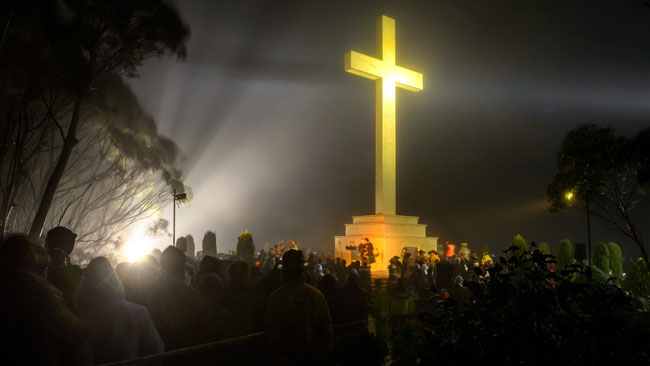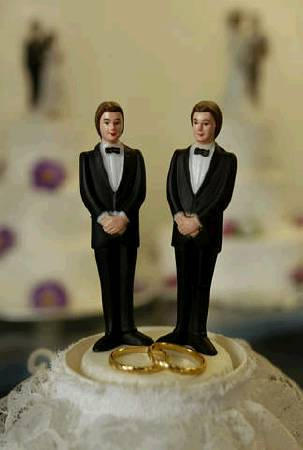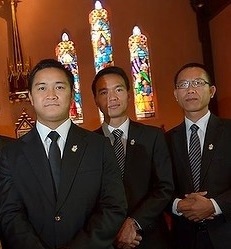Large crowds populated all the Anzac Day ceremonies I attended yesterday.
The breakfast which followed the dawn service included rum mixed with International Roast. That combination is probably the best and only way to consume those two beverages.
I heard a lot of stories about war. Good and bad. I heard the story of a ten year old in WWII whose hawkish arguments were only curtailed when his uncle described his own experience in WWI:
I fought on the Western Front. On my first day at the front line, we were ordered to take the German trenches.
Machine gunfire mowed us down, and we fell back. The dead and injured were left in no-man’s land. We couldn’t retrieve them because leaving the trenches meant instant death.
For five hours, we endured their cries for help, and tried to block it out. We had no choice.
Then a man cast his shadow over our trench. We looked up, and saw a seven foot German looking down at us. He was carrying one of our injured. ‘Help your friends,’ he told us.
He handed us the injured Australian, and then he turned around and walked back to the German line. We shot him in the back.
Isn’t that an awful story? It was enough to stop a 10 year old in his tracks, and realise that not every German was a baddie, and not every Australian was a goodie. More broadly, it reminds me of one of the many evils of war. War is barbaric. War is an occasion for good people to do horrifically bad things.
Of course, the opposite is true too. War can also be an occasion for noble sacrifice and heroic goodness. Simpson and his donkey are just one example, and more broadly, I think the Anzac Spirit is another example.
There are some Australians who were uncomfortable with this week’s Anzac celebrations. They feel the celebrations glorify war and romanticise violence. But I’m not convinced that’s what is occurring in the hearts and minds of Australians.
It’s significant, I think, that Anzac Day commemorates not a military victory, but a noble defeat. That points to something. The Anzac spirit doesn’t celebrate war. It celebrates a spirit of service; heroic generosity; and friendship.
“Greater love hath no man than this,” Jesus tells us. “To lay down his life for his friends.”
This Sunday’s Gospel contains similar words:
“I am the good shepherd . . . I lay down my life for my sheep.”
Now of course, the Lord wasn’t talking about death on a battlefield. It would be perverse to say that. Jesus is a master of non-violent resistance. He was talking about his death on a cross. But it’s not perverse to see an analogy in the mystery of the cross — the Lord’s cross and your cross and my cross — and the Anzac spirit.
The Lord wants us to foster a spirit of service. He calls us to heroic generosity. He gives us the means to love as he loves, even to the point of death. This doesn’t “baptise” or “canonise” war. War in itself is evil, and as that story from the Western Front reminds us, war is also an occasion for great evil.
The Lord’s words don’t give us license to die for any cause of our choosing, either. A suicide bomber dies for a cause, but he is no martyr. A martyr would rather suffer death at the hands of his oppressors than renounce his beliefs. Killing yourself and innocent people to make a point is an act of oppression, not resistance to it. That’s not martyrdom, it’s brutal murder.
In any event, God doesn’t actually ask us to be martyrs. He calls us to be heroes. A hero would die for love, but he’d much rather live for it.
That’s the Anzac spirit I think. And it’s also the lesson of the cross.






Father John this is a beautiful homily. I love the way you explained war bringing evil, ie Australian shot German in back after bringing the wounded soldier back to his comrades. Then the good ie Simpson and his donkey. The apology of the Cross was also very fitting. So glad I read this. God bless.
Lovely Homily Fr. John!
It was really great to see so many young people at the ANZAC ceremony’s around the country, and one thing occurred to me as I saw this on news reports ect. is that young people are drawn to this because it is taken and presented as serious and not watered down as something that “just” happened in our history. Also if one looks as to where the faith is flourishing, it is within parishes and areas where the faith is taught and taken very seriously, and not the happy clappy Protestant version of Catholicism, because young people are intelligent and should not be taught the faith in a manner that is not taken seriously. Just a thought ?
Yeah. I’m a bit surprised myself Simon. The Our Father was said at both services I attended on Saturday. Though I did notice many other variations. I get the sense that the order of service is quite flexible.
That’s an awful tale. No matter what the context, to hear of someone being shot or stabbed “in the back” sounds always like a euphemism. Hard to believe anyone would ever actually do it, given the stigma attached.
Hello Fr. Corrigan what’s going on about this blog! Next to my name is a photo of you then the post about Deacon Joel has be deleted! Has Joel been old tricks again! I gave Joel 7 and half for this sermon! Are you both on this week! Is anyone coming to Warrnambool to watch the Grand Annual Steeplechase this Thursday! Bruno keeping eye on the race! Fr. Kerr sister was up watching Mass For You At Home! I wonder why because she has children!
I know the day has past but on May 15 in 1803 the first Roman Catholic Mass was held in Australia Sydney by Fr. James Dixon! I will be back later in week with horse racing tips for Saturday and Sunday! Casterton Cup Day! Fr. Corrigan blog how the day goes with Penecost Sunday too!
there are big races at Queensland at Doomben I like Race6no11, Race8no.1and9. Race9no8. At Flemington there is race name after the famous Henry Bolte the former premire! in Race three! I like number one! Race6no1and 12 Race7no3 and 9! Race8no4,7 and 10! In race nine no8and 14! I put some tips for Casterton on Sunday tomorrow! Each way and happy punting!
Well tomorow it is big day for the church and the country town called Casterton! It’s Casterton Cup Day and they have three jumps races one is the famous steeplechase!
You could call it “God Own Country” Adam Linsday Gordan is famous for riding there! There is memorial between Casterton and Coleraine! A horse called Lazza won about 10 steeplechasers there! There is race caller who loves calling the jumps and at Casterton his name is Richard McIncosh! You probaly here his voice from your place Fr. Corrigan! Here are some tips!
Race2No9 and 11 Race3No3.5 and 8. Race four is the famous steeplechase! No4and2 Race5No8.10and 16.
Race six is the Cup! I like 4,8 and15
Race7no7,9 and 16 The lucky last I like Number 6,2 and 7. Also the races at Bendigo follow Jason Benbow! I will admit there is big junior football carnival on tomorrow yes at Casterton at Island Park! Keep Well and happy punting from Simon the Pieman.
Here is a replay of the open country steeplechase from Casterton yesterday Richard McIncosh is the caller earlier in the day he mention Fr. Eugene Mackinnon about his big celebration and he also mention Fr. Corrigan he said he is in office at Casterton!
http://www.racing.com/form/2015-05-24/casterton/race/4/results
Tomorrow it is 160th running of the Aspley Cup at Edenhope! Sorry I haven’t done the form but if really want my tips let me know! I have some tomorrow! Fr. Corrigan how is the kelpie festival going in Casterton this weekend! Keep well from Simon the Pieman.